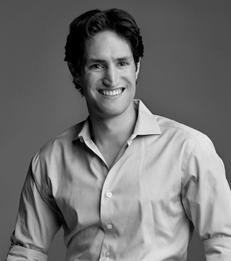Opinion
The Spiritual Life of the Long-Distance Runner
—


Faced with a string of these superficial decisions, many people become introspective. They begin to question whether their lives are meaningful.
By Adam Alter
Shortly after sunrise, on June 14, 2015, a Finnish man named Ashprihanal Aalto stood on Eighty-fourth Avenue, in Queens. At 6 A.M., he began running around the block. He passed a playground, some houses, and a technical high school. After half a mile, he returned to his starting point. Then he kept going—until, forty days later, he’d run five thousand six hundred and forty-nine laps, for a total of thirty-one hundred miles. Aalto was one of twelve runners attempting the world’s longest certified footrace, the Sri Chinmoy Self-Transcendence 3,100 Mile Race. Eight of the runners finished the race within the fifty-two-day time limit. Aalto finished fastest and broke the world record by almost a full day.
The obvious question is why Aalto, or anyone else, would choose to run three thousand miles around a single city block. Even compared to other ultramarathons, the Sri Chimnoy is particularly—perhaps deliberately—unpleasant. The route isn’t picturesque or awe-inspiring; Aalto pounded the same stretch of pavement for eighteen hours a day, from 6 A.M. to midnight. Since 2000, he has run the Sri Chinmoy thirteen times, so the novelty of finishing the world’s longest race has surely worn off. All the same, some runners seem to find the experience deeply rewarding. What, exactly, is the nature of that reward?
Read the full article as published in The New Yorker.
___
Adam Alter is an Associate Professor of Marketing with affiliated appointment in the Psychology Department.
The obvious question is why Aalto, or anyone else, would choose to run three thousand miles around a single city block. Even compared to other ultramarathons, the Sri Chimnoy is particularly—perhaps deliberately—unpleasant. The route isn’t picturesque or awe-inspiring; Aalto pounded the same stretch of pavement for eighteen hours a day, from 6 A.M. to midnight. Since 2000, he has run the Sri Chinmoy thirteen times, so the novelty of finishing the world’s longest race has surely worn off. All the same, some runners seem to find the experience deeply rewarding. What, exactly, is the nature of that reward?
Read the full article as published in The New Yorker.
___
Adam Alter is an Associate Professor of Marketing with affiliated appointment in the Psychology Department.
